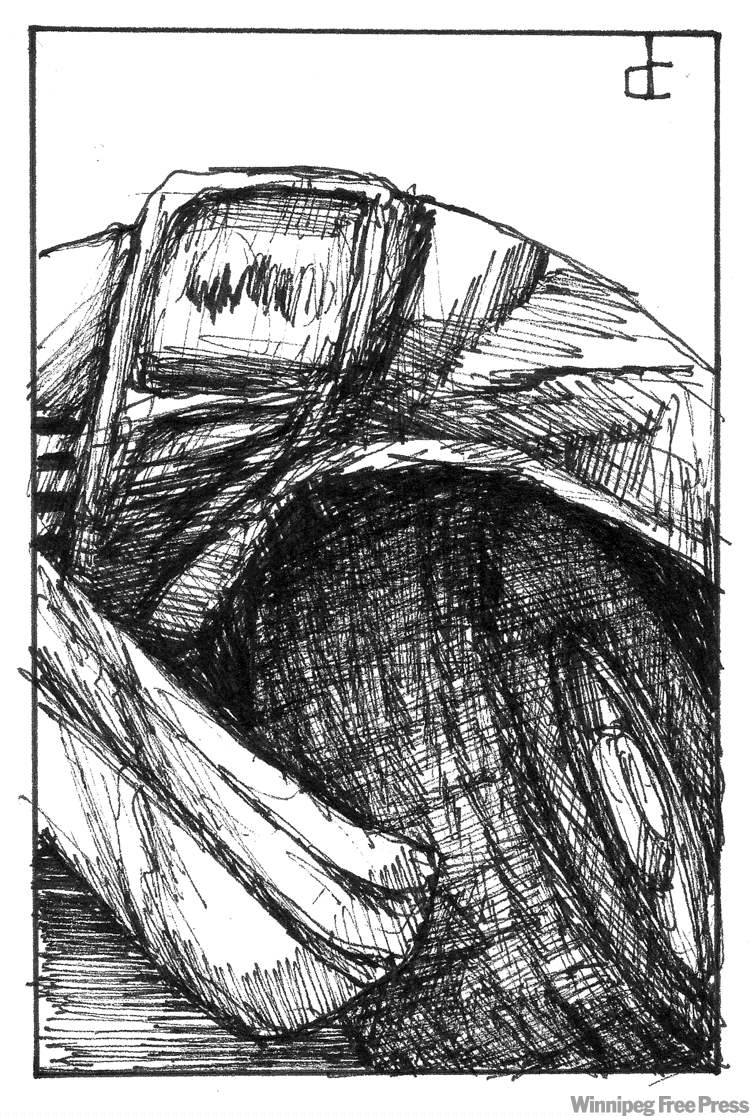Reducing fender benders
Advertisement
Read this article for free:
or
Already have an account? Log in here »
To continue reading, please subscribe:
Monthly Digital Subscription
$1 per week for 24 weeks*
- Enjoy unlimited reading on winnipegfreepress.com
- Read the E-Edition, our digital replica newspaper
- Access News Break, our award-winning app
- Play interactive puzzles
*Billed as $4.00 plus GST every four weeks. After 24 weeks, price increases to the regular rate of $19.95 plus GST every four weeks. Offer available to new and qualified returning subscribers only. Cancel any time.
Monthly Digital Subscription
$4.99/week*
- Enjoy unlimited reading on winnipegfreepress.com
- Read the E-Edition, our digital replica newspaper
- Access News Break, our award-winning app
- Play interactive puzzles
*Billed as $19.95 plus GST every four weeks. Cancel any time.
To continue reading, please subscribe:
Add Free Press access to your Brandon Sun subscription for only an additional
$1 for the first 4 weeks*
*Your next subscription payment will increase by $1.00 and you will be charged $16.99 plus GST for four weeks. After four weeks, your payment will increase to $23.99 plus GST every four weeks.
Read unlimited articles for free today:
or
Already have an account? Log in here »
Hey there, time traveller!
This article was published 18/08/2011 (5305 days ago), so information in it may no longer be current.
In Winnipeg, the saying goes, with every first snowfall of a new winter season, motorists have to learn how to drive all over again. Collision statistics show that the lessons of the last go-around with ice and snow are too soon forgotten by too many, and rear-enders and fender-benders take their annual toll.
That toll is most personal when resulting in deaths and injuries, but it also affects the pocketbooks of insured vehicle owners as claims paid by Autopac affect ratepayers’ premiums. The Highway Traffic Act requires drivers to drive prudently — adjusting speed for the conditions, but some jurisdictions have taken additional precautionary steps to cut the number of collisions at predictably dangerous times of the year for traffic.
Winnipeg and Manitoba are cool to some of these ideas — there is no consideration, the province responded to reporter Jen Skerritt’s inquiries, of adopting Quebec’s mandatory snow tire law. It is an expensive proposition, particularly for low-income families and there are other options that can be studied first. There is a plan to expand the use of brine spray, previously applied on bridges, to prevent icing up on regional roads this winter. The city would do well to target, more broadly, the most troublesome intersections that get polished to a glassy finish when the temperature promotes skidding on snowy streets.

Edmonton has used variable speed limits on roads to reduce maximum speeds during hazardous weather. Anecdotally, it is believed the policy has contributed to the reduction in vehicle accidents. That could be useful on Winnipeg’s high-speed arteries, where habit frequently overrides prudence.
The Highway Traffic Act permits municipalities to pass bylaws reducing speed limits, with the approval of the highway traffic board. The city should plot the combination of weather and road conditions to predict when and where collisions historically have occurred most frequently. That would be worthy of a pilot project, combining public education with enforcement to help Winnipeggers remember the lessons of the last fender-bender season.


